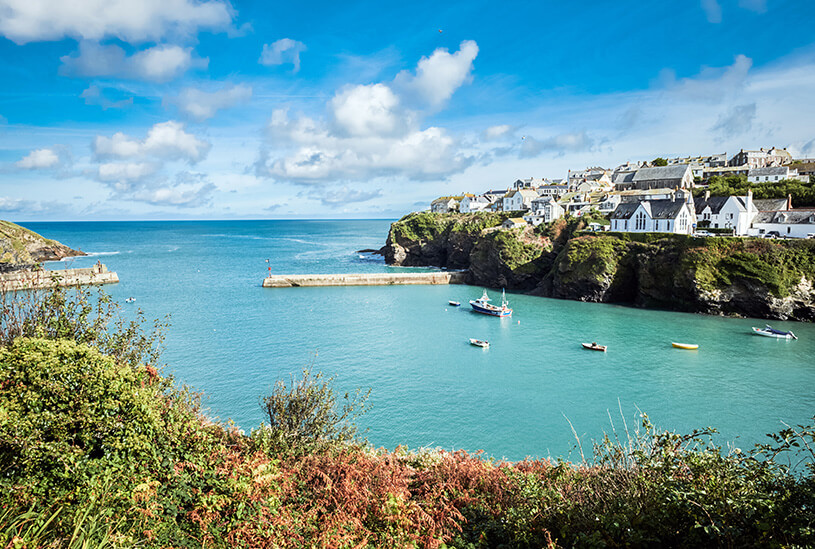A rise in staycations and people holidaying in the UK means more people are considering investing in holiday homes to rent out.
Most investors will need a specialist mortgage when buying a holiday let. Read on to find out how holiday let mortgages work, plus some of the tax advantages.
What is a holiday let mortgage?
A holiday home mortgage is a specialist product that’s designed to cover homes let out to holidaymakers on a short-term basis.
Most lenders won’t give you a traditional residential or buy-to-let mortgage if you plan to rent out the property you’re buying to holiday tenants.
As with all mortgage products, the cost of your holiday let mortgage will vary depending on the size of your deposit and your interest rate.
You could get an interest-only holiday let mortgage, where you pay off the interest you owe each month.
Alternatively, you could get a repayment mortgage, where you pay off the cost of the property plus interest over an agreed period.
Read more: Do I need a holiday let agent? A guide for holiday home owners
How do holiday let mortgages work?
Holiday let mortgages work in a similar way to buy-to-let mortgages. You’ll need to:
- save a deposit
- shop around for the best mortgage deals
- apply for a mortgage
- wait for a mortgage offer from your lender
For your property purchase to be considered a holiday let by a lender, it’ll need to meet the following criteria:
- the property must be available for at least 210 days a year
- it must be let out for at least 105 days a year
- each rental must be no longer than 31 days
- any stay longer than 31 days doesn’t count towards the annual total
- renting to friends or relatives for free or at reduced rates doesn’t count towards the annual total
Getting a holiday let mortgage can be complex and this article is intended as a guide only. Please get advice from a banking and finance expert if you’re not sure of anything.
Holiday let mortgages criteria explained
The short-term and seasonal nature of holiday lets means that there’s increased risk for mortgage lenders. As a result, the criteria borrowers need to meet is different.
Here’s an overview:
- it’s likely the lender will only give you a holiday let mortgage if you already own your own property
- you’ll usually need a deposit of at least 25 per cent
- the maximum Loan to Value (LTV) for a holiday let mortgage is usually 75 per cent
- the maximum loan amount from a holiday let lender is usually between £1 million and £1.5 million
- you can’t use a holiday home as your main residence (although you can stay there for a limited time throughout the year)
- most lenders require a minimum personal income of around £25,000 a year or £30,000 for joint applicants
When you apply for a holiday let mortgage, you’ll also be expected to provide an estimate of the rental income you’ll generate.
Most lenders will only give you a mortgage if you can prove you’ll be able to make between 125 per cent and 145 per cent of the monthly mortgage repayments (before tax) at an interest rate of 5.5 per cent.
For example, you buy a holiday let for £300,000 with a 25 per cent deposit of £75,000.
With an interest rate of 5.5 per cent, the monthly repayments on an interest only mortgage would be £1,031.
To get a mortgage, most lenders would require you to generate a minimum of £1,500 rental income a month (£18,000 a year), which is 145 per cent of the monthly repayment.
This holiday let mortgages calculator from Holiday Cottage Mortgages can give you an idea of how much rental income you need to generate, plus what your monthly repayments could be.

andreac77/stock.adobe.com
Holiday let mortgage rates – how to get the best deal
Due to the short-term nature of holiday lettings, mortgages for these types of properties can be more expensive.
However, there are several tax benefits that you don’t get with buy-to-let investment that can boost your returns.
Getting the best holiday home mortgage deal is a similar process to finding a residential or buy-to-let mortgage.
You’ll need to shop around for the best interest rate and think carefully about whether you want a fixed or variable rate mortgage.
It’s important to remember the higher your deposit, the lower your repayments and interest rate are likely to be.
Rates for holiday let mortgages tend to sit between two per cent and four per cent. A mixture of high street banks and smaller building societies offer holiday let mortgages. Here are some of the best known providers:
- Ipswich Building Society
- Furness Building Society
- Teachers Building Society
- Hodge Bank
- Leeds Building Society
You’ll also need to keep an eye on rising interest rates and inflation as this could affect your affordability in the future.
Mortgages for holiday lets – what are the tax advantages?
If you decide to buy a holiday let, there are some tax benefits that can increase your return on investment.
Unlike buy-to-let landlords, owners of holiday lets can deduct mortgage interest payments from their rental income. This means their profit is reduced, so they can pay a lower tax bill.
Buy-to-let mortgage interest tax relief for traditional landlords was restricted between 2017 and 2020. Landlords with a buy-to-let mortgage now only get a tax credit at the basic rate of income tax (20 per cent).
Some of the other tax benefits of buying a holiday let with a mortgage include:
- you can claim capital gains tax relief if you sell the property in the future
- if your holiday let business makes a loss, you can offset it against future profits to pay less tax
- you can claim allowances for furniture and fittings in your holiday home (unlike buy-to-let landlords)
It’s important to note that if your holiday home is your second property, you’ll need to pay a three per cent stamp duty surcharge.
Read our guide to furnished holiday let tax for more information.
Where are the UK’s holiday home hotspots?
So you’ve decided to buy a holiday let, but where in the UK can you get the best returns?
Sykes Holiday Cottages has calculated the top 10 areas for holiday lets, based on average annual rental income:
Location | Average annual rental income |
Dorset | £12,561 |
Devon | £11,606 |
South Coast | £10,520 |
Northumberland | £10,476 |
Peak District | £10,186 |
Somerset | £10,023 |
Highlands and Islands | £9,886 |
North York and Moors | £9,883 |
North Wales | £9,443 |
Yorkshire Dales | £9,179 |
Read our guide to the UK’s best holiday let areas for a more detailed summary.
Do you have any unanswered questions about holiday let mortgages? Let us know in the comments below.
Useful guides for buy-to-let investors
- The ultimate guide to buy-to-let property investment in the UK
- How can landlords get a buy-to-let remortgage?
- What should you include in a welcome pack for your holiday let?
- What is holiday let insurance?
Get set with tailored landlord cover
Over 200,000 UK landlord policies, a 9/10 customer rating and claims handled by an award-winning team. Looking to switch or start a new policy? Run a quick landlord insurance quote today.
andrewmroland/stock.adobe.com
andrewmroland/stock.adobe.com
